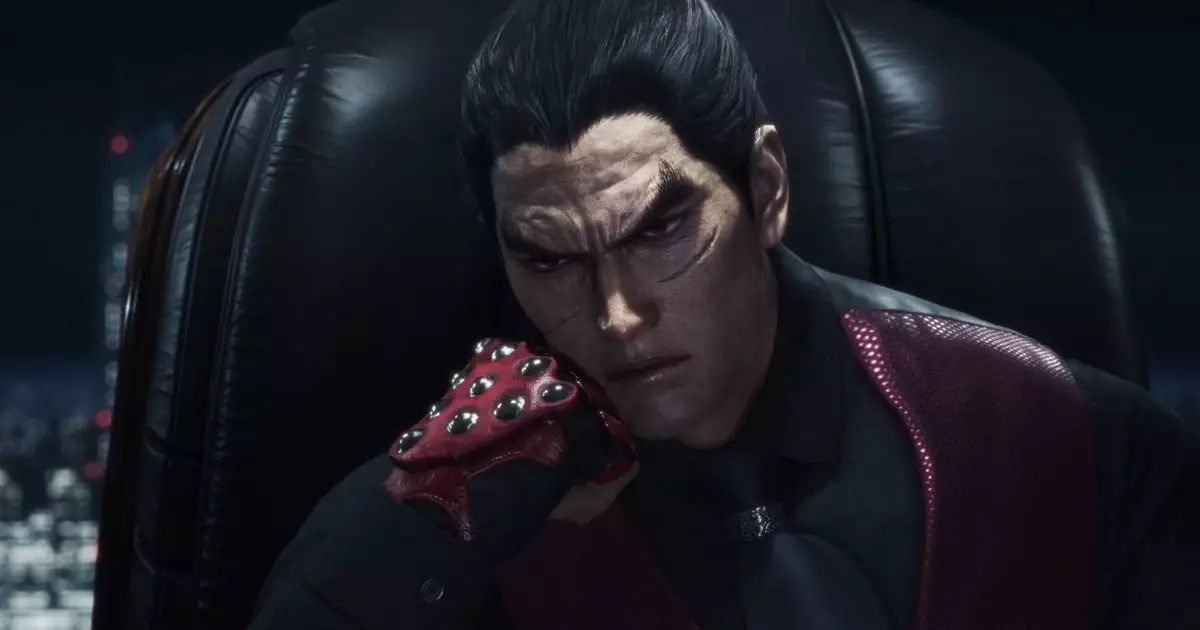The world of video games is often painted in vivid colors, bustling animations, and thrilling narratives. However, lurking behind the captivating graphics and engaging gameplay is a realm of stress that few truly comprehend. Katsuhiro Harada, the esteemed director behind the iconic Tekken series, recently illuminated this grim reality by sharing his personal journey through the turmoil surrounding the release of Tekken 4. His candid anecdote reveals not just the challenges of game production but the very human cost that can come with it.
In 2001, when Tekken 4 was released, it faced a mixed reception that shook Harada to his core. What transpired wasn’t merely disappointment in sales or critic reviews; it was a profound emotional and physical response that spiraled into a health crisis. Harada disclosed that he experienced an unusual ailment leading to significant hair loss, an affliction he believes was directly fueled by the overwhelming anxiety of the project. This raises an essential question: How often do we consider the mental toll that creative professionals endure in pursuit of success and validation?
The Unseen Consequences of High Expectations
Game development is not just a creative endeavor; it’s a battleground of expectations. Developers are at the mercy of their audiences, critics, and internal stakeholders, who often have conflicting visions of what a game should be. For Harada, the public’s harsh criticisms during the initial release of Tekken 4 became unbearable. The weight of controversy left him feeling isolated, believing that no one within his organization shared his perspective or supported him during this critical time.
His experience illustrates the paradox in the world of artistic creation: while an artist hopes to connect deeply with their audience, they are often dismissed or ridiculed when their vision does not resonate. This emphasizes how subjective the appreciation of art can be. What may later be revered as a masterpiece can initially plunge its creator into despair and self-doubt. The way Harada reflects on the passage of time highlights this painful irony—praise often comes too late, and the scars from the criticisms of yore can leave a lasting impact.
The Psychological Mechanism Behind Stress-Related Illnesses
The insight into Harada’s hair loss extends beyond mere anecdote—it provides a window into the physiological effects of stress. Conditions such as alopecia areata, which prompt hair loss as an immune response to stress, highlight the intricate link between mental health and physical well-being. When the body perceives stress as a threat, it can resort to self-damaging responses, leading to deteriorating health. This phenomenon invites a broader dialogue about the need for mental health support within the gaming industry, where fierce competition and high-stakes pressure prevail.
As Harada’s tale unfolds, one cannot help but ponder how many other creative professionals remain silent about their struggles. The industry is rife with stories of burnout, anxiety, and overwhelming pressure. It begs the exploration of whether robust support systems are in place for those who pour their hearts and souls into their work, risking their health in the name of entertainment.
The Legacy of Criticism and the Art of Reflection
Despite the emotional fallout from Tekken 4’s release, time has allowed Harada to cultivate a different perspective on the situation. With the launch of Tekken 8 on the horizon, he finds himself reflecting on his past challenges. Harada’s acknowledgement that critics have since overlooked their initial harshness in favor of nostalgia speaks volumes about the evolution of public opinion in gaming culture. It highlights how trends can shift dramatically with time, and how the narrative surrounding a game can morph from scorn to reverence.
The story reminds creators that every setback carries lessons that shape their future endeavors. Harada’s journey is an emblem of resilience; he has not only survived the storm but emerged wiser. His continued leadership in the Tekken franchise symbolizes his ability to navigate the tumultuous waters of game development despite the lingering shadows of past failures.
As we dive into the world of Tekken 8, it becomes imperative for both creators and consumers to acknowledge the human stories that underlie the glitz and glamour of video games. Games like Tekken are not merely products; they are labors of love, wrought with personal sacrifices and moored in profound emotional experiences. Harada’s narrative serves as a vivid reminder of this reality, pushing us to appreciate the artistry behind each game we play.

